Top Fifa referee dismisses video technology
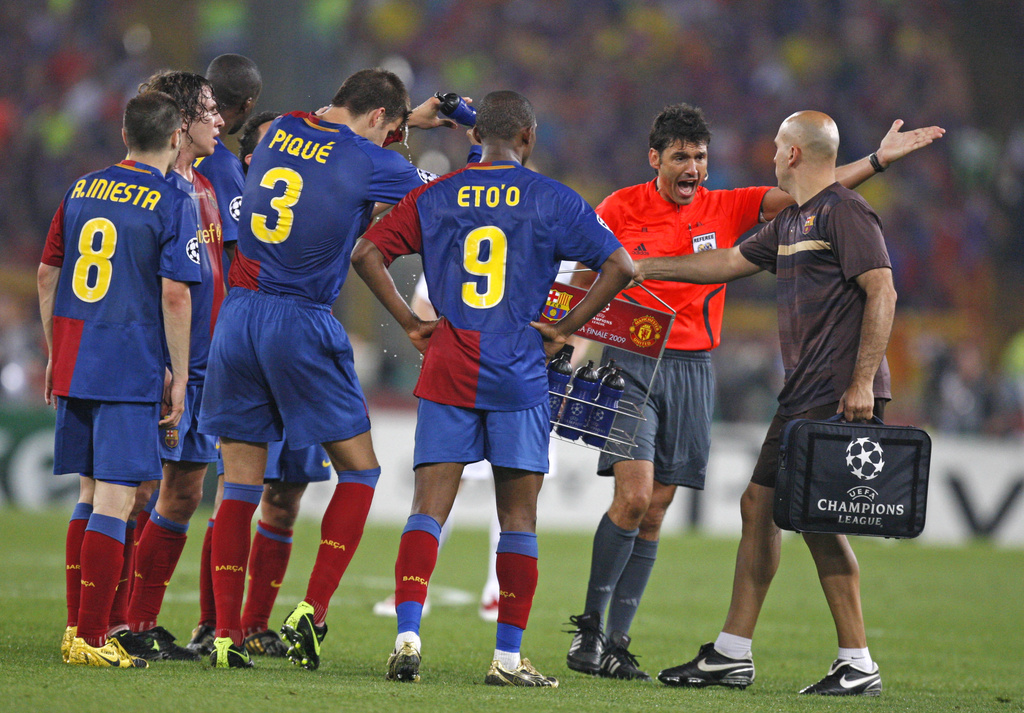
Massimo Busacca, the new head of refereeing at Fifa, tells swissinfo.ch how football referees are going to have to become as professional as the players they keep an eye on.
The 42-year-old Ticinese, who has more than 20 years’ experience as an international referee, was hired by world football’s governing body last week to prepare match officials for international tournaments.
Busacca also explains why he rejects the use of videos evidence to settle controversial decisions and discusses the possible introduction of goal-line referees for the 2014 World Cup in Brazil.
swissinfo.ch: Your resignation as a pitch referee has caused surprise and irritation. Recently retired top Swiss referee Urs Meier was particularly shocked. Were you surprised by this reaction?
Massimo Busacca: Not so much. But it’s a great honour for me to hear ‘Busacca was important’ or ‘Busacca had quality ‘. Had I not been these things, the surprise would have certainly been less.
People wonder why I quit three years before the end of my career. I have chosen the job of chief of world referees because it offers great opportunities. I can continue to be active in refereeing which I have always loved. In particular, I can pass on my experiences as a referee over my 22-year career. It’s not goodbye, just see you later.
For my career, I have to thank God and my wife, because a lot of sacrifices have had to be made over all these years. I must also thank my employer [canton Ticino], which has always said, ‘Massimo, take time off, just go’. But in the end, it was not always easy to combine a job and refereeing.
swissinfo.ch: Urs Meier called for professional referees in Switzerland. Do you agree?
M.B.: In my head I was always a professional, even without professional support from the association. My motto was always, ‘If you want something, you have to make sacrifices for it and then you get results’.
I was only able to give quality performances because I always sacrificed other areas of my life to the demands of being a referee. In all the years I was a referee I reduced my workload in my job in order to prepare myself more seriously for matches.
My decision, which I’ve thought long and hard about, has no connection to Urs Meier’s resignation. I always stay away from controversy, and I will always make a constructive contribution. That’s why I accepted this new task.
swissinfo.ch: From August, as head of the Fifa referees, you are the world’s top referee. What exactly will be your responsibilities?
M.B.: Like the coach of a football team, I’ll be coach of the team of referees. Together with them, I have to analyse what they can do better.
swissinfo.ch: The game is getting faster and after being used in the Europa League goal-line referees are now also employed in the Champions League. Will they make an appearance at the 2014 World Cup in Brazil?
M.B.: It’s still too early to answer that question. What is certain is that we will do everything we can to ensure that in 2014 the audience all over the world experiences a great tournament.
The experiment with goal-line referees was initially somewhat patchy. But in this year’s Champions League the use of two additional referees was a big success, so it’s being continued.
At Euro 2012 in Poland and Ukraine we’ll examine for the first time how good a team of six referees in a major tournament proves to be. If the evaluation is positive, then goal referees will be used at the 2014 World Cup.
swissinfo.ch: After numerous controversial refereeing decisions during the World Cup in South Africa a year ago there were loud calls for the introduction of video evidence. What’s your view on that?
M.B.: I’m against it. We’ve talked about having fifth and sixth referees. I’m convinced that this is a good solution to better address the situation.
There are two discussions: we must have 100 per cent trust in people. We trust great players who do everything for the success of their team and as a result earn lots of money. But even the stars make mistakes and that is accepted.
We do not want to accept it, however, if a referee – who must make countless decisions each game – makes one mistake. In order to minimise mistakes, we now have the additional support of the goal referee and even the goal camera. But for other situations, I am strictly against the use of cameras.
Like players, referees must deal with football every day, whether they are professional or not. You can be a pro on paper but be bad with the whistle.
Professionalisation focuses primarily on quality. For referees, this means that they get a lot more time to prepare. This includes the study of video analysis as well as constant discussion with the referee team.
We have to move away from demanding error-free referees. To rule out mistakes completely, one would have to replace referees with robots, but I’m convinced that this would spell the immediate end of football.
swissinfo.ch: The retirement age for referees is 45. Should it be more flexible to keep top referees?
M.B.: It’s difficult to say. On the one hand, the quality of the referee is not necessarily a question of age. On the other hand, it is also a question of ambition. Someone who has refereed for many years at a high level is perhaps not as motivated. Referees always have to be full of concentration and passion.
One effect of this good work will hopefully be that referees are increasingly seen as role models by young people.
The Ticinese, who runs three cafeterias of the cantonal administration, was a referee for 22 years.
In 2009, he became the first Swiss to be named a “world referee”. In addition he was six times named Swiss referee of the year (2005 – 2010).
He refereed his first match in the Swiss National League A in 1996 and he’s blown his whistle in 250 senior matches in that league.
Busacca became a Fifa referee in 1998. He’s taken part in two World Cups (2006 and 2010) as well as Euro 2008.
Busacca was referee of the Uefa Cup in 2007 and the Uefa Supercup in 2010.
He counts the high point of his career the final of the Champions League between Barcelona and Manchester United (2-0) in 2009.
A big disappointment was when he was discharged after only the first game of the World Cup in South Africa in 2010.
In the Champions League and Europa League there are two additional goal-line judges – who judge whether a ball has crossed the goal line or not – as well as the usual referee and two assistant referees (linesmen).
There will be six referees among the teams at the Euro 2010 in Poland and the Ukraine. If this works, the goal-line judges will be used at the 2014 World Cup in Brazil.
Whether four referees or six, Fifa president Sepp Blatter is demanding only professional referees.
At the World Cup in South Africa, mistakes by referees caused heated debate.
(Translated from German by Sophie Douez)

In compliance with the JTI standards
More: SWI swissinfo.ch certified by the Journalism Trust Initiative
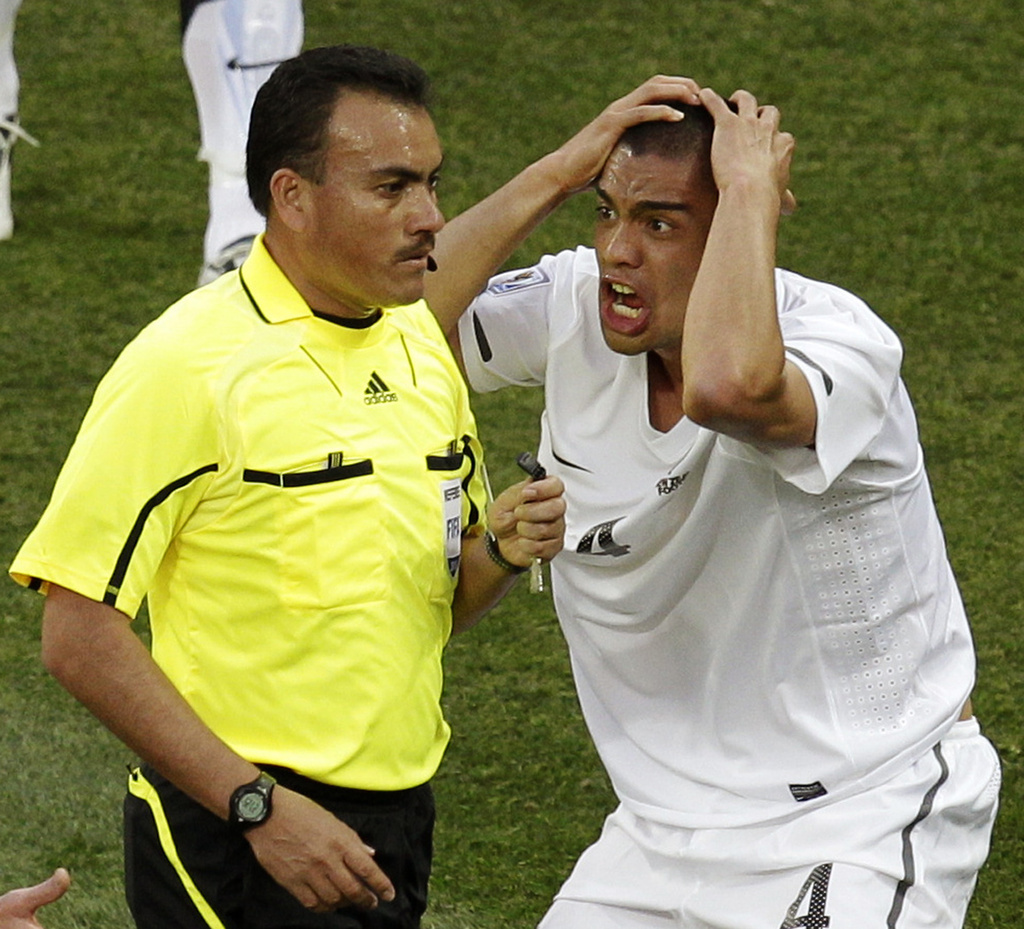
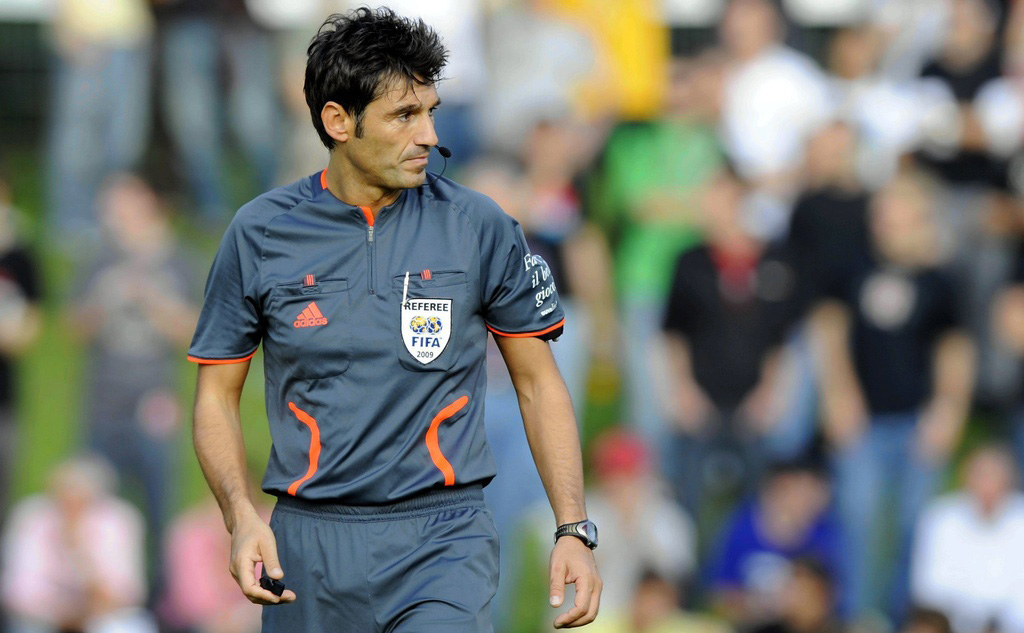
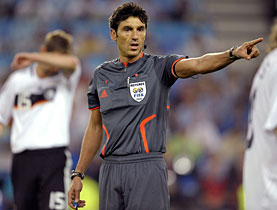
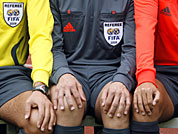

You can find an overview of ongoing debates with our journalists here. Please join us!
If you want to start a conversation about a topic raised in this article or want to report factual errors, email us at english@swissinfo.ch.